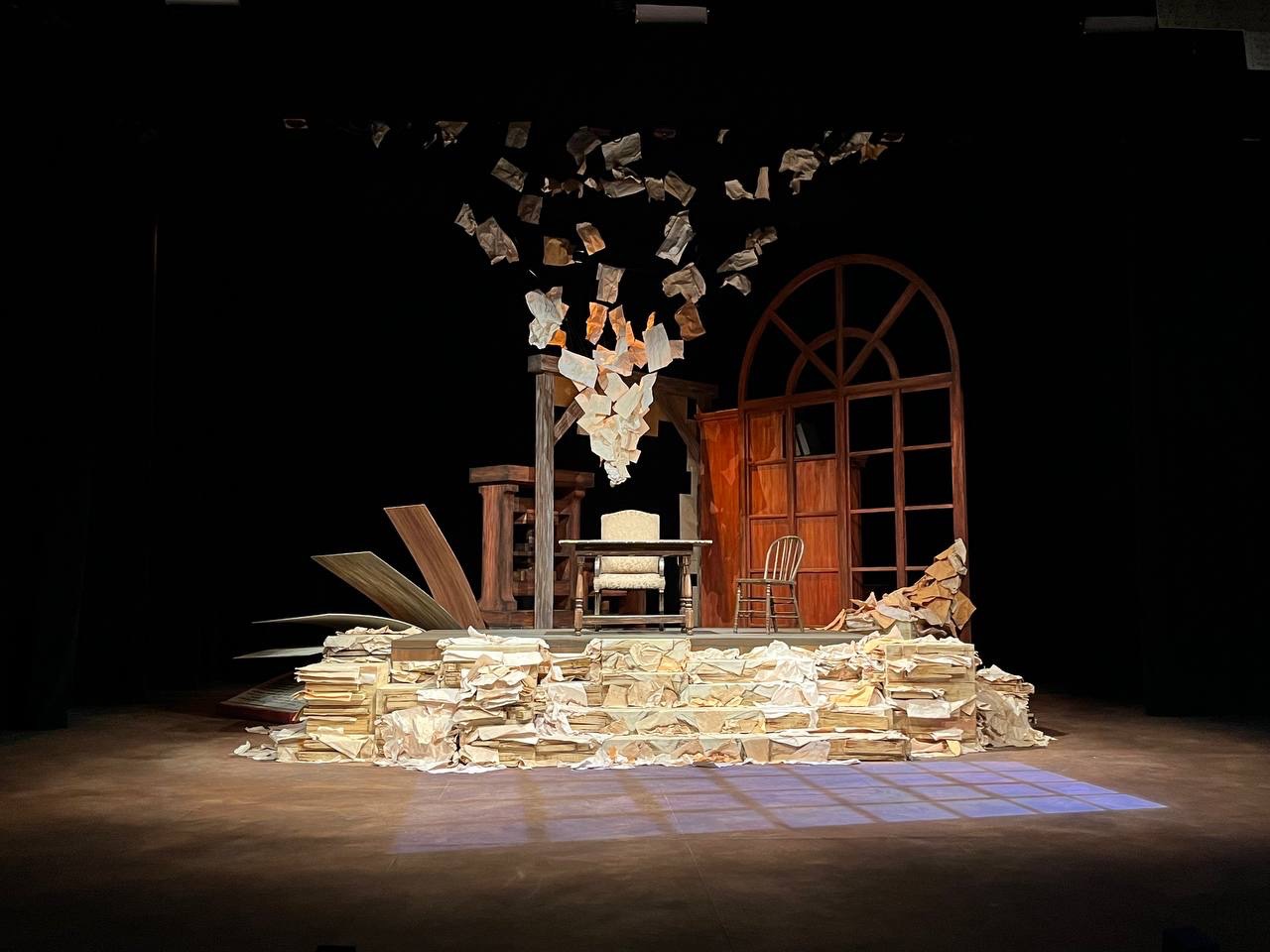Blending a poignant reflection of Shakespeare’s legacy and high-energy comedy, The Very Book Indeed achieves its set-out goal of exploring the importance of Shakespeare and the value of art in an increasingly commercialized world in a generally steady manner, only occasionally punctured by the unwieldy moment.
The main story of the play – directed by Moya O’Connell and written by Paul Budra – follows Henry Condell and John Heminges, two former colleagues of Shakespeare, who struggle to collect and assemble the first complete collection of The Bard’s plays. But interspersed alongside it are scenes from Shakespeare’s works including Lady Macbeth’s infamous monologue and The Tempest’s stormy opening, some of the best scenes woven into the play. However, others feel more forced, like the moment where Cymbeline was abruptly referenced by the two leads . Another issue with some of the scenes was that the lines were not enunciated enough, especially during noisier scenes such as in The Tempest. However, the choice of lighting, blood-red during Lady Macbeth, blue during the death of King Lear, and the live music accompaniment were great additions that really furthered the overall atmosphere of the scenes.
As the story progresses and the two colleagues labor to secure licensing rights, the thought of the effort to assemble the collection always looms over them, a reference to the posthumous publication of Shakepeare’s First Folio. The two colleagues pushed on in spite of the difficulty, because to them, this was not just a profit venture but a monument to their former colleague’s work — a preservation of what they believed to be a lasting repertoire of theater that deserved to be passed down to future generations.
The clash between profit and art rings all too clearly in the modern world of convenient but soulless AI art and writing which have increasingly encroached upon the traditionally human world of expression, forcing us, just like Condell and Heminges, to choose what we truly value the most in the end.
Alongside the assembling of the First Folio, the play follows the English dramatist, Ben Johnson, another contemporary of Shakespeare’s, whose awareness of his dying legacy, and questioning of Shakespeare’s, asks the audience to ponder who gets canonized into the works of great literature and why. In this case quite literally, as Ben Johnson steps off the stage and walks around the theater framing a comparison between his legacy compared to Shakespeare’s towering one, by directly asking questions to audience members. But as envious as he is of Shakespeare, he still deeply appreciates and acknowledges the majesty of the Bard’s work ultimately writing in the First Folio the dedication that Shakespeare was, “not of an age, but for all time.”
As Ben Johnson concludes his thoughts, multiple Shakespeares appear and offer comfort with lines from Shakespeare’s plays, in a genuinely touching moment especially with an excellent delivery of the “We are such stuff as dreams are made of”. To cap it all off, there is a joyful dance scene and as saying goes, “all’s well that ends well”.
On the more technical side of things, I found the costuming to be suitable for representing the historical era but nothing spectacular. But the set design was something truly stand out, with the paper vortex and stacks of the paper on the stairs of the main office background reinforcing the whimsical and kinetic energy of the play.
Overall, The Very Book Indeed was able to skillfully balance a sentimental and reflective questioning of Shakespeare with an audience-interactive comedy that was even able to harmonize the parts into a greater whole. It’s a play that will make you think and ask questions of Shakespeare, art and legacy, but hopefully with some chuckles interlaced between your reflections.
DANIEL LI IS A GRADE 11 STUDENT PASSIONATE ABOUT POLITICS AND JOURNALISM.
